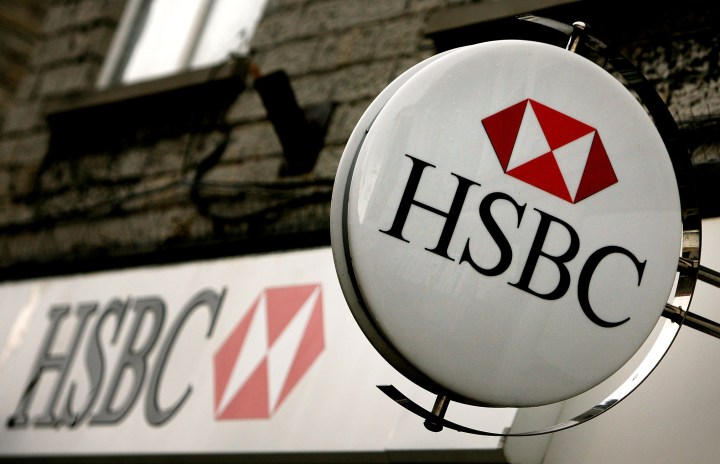
One big bank halts new fossil fuel investments. Will others follow?
One big bank halts new fossil fuel investments. Will others follow?

Europe has been dealing with an energy crisis for much of this year, but there’s been some recent good news on the climate front on the Continent. HSBC, Europe’s largest bank, announced this month it will stop investing in new oil and natural gas fields.
Climate activists have long called on big banks to divest from fossil fuel, but most have been reluctant thus far to exit such a profitable investment arena. A report by a consortium of environmental groups this year found that the world’s 60 largest banks had invested $4.6 trillion in fossil fuels since the signing of the Paris Agreement of 2015. However, according to Bill McKibben, founder of the climate advocacy organization Third Act, HSBC’s decision could begin to change some financiers’ minds.
“It’s a pretty big deal,” McKibben said in an interview with Marketplace’s Nova Safo as part of our Economic Pulse series. “It’s the first time that one of the members of the club of really big banks has bowed to public pressure and said, ‘We’re going to get out of the business of expanding the fossil fuel empire.'”
The following is an edited transcript of their conversation.
Nova Safo: HSBC is keeping its current oil and gas investments but promising not to make new ones. How significant is this pledge from HSBC?
Bill McKibben: I think it’s a pretty big deal. It’s the first time that one of the members of the club of really big banks has bowed to public pressure and said, “We’re going to get out of the business of expanding the fossil fuel empire.” HSBC is the biggest bank by assets in Europe, and hopefully the signal will be heard in this country because Chase, Citi, Wells Fargo and Bank of America are the four biggest lenders to the fossil fuel industry. They’re in the thick of this fight with scientists about whether it’s OK to keep expanding the fossil fuel enterprise. Everybody knows we’re going to be using oil for a few more years. But what we can’t be doing is building new frack wells, new pipelines, new [liquefied natural gas] terminals, all that kind of stuff. The scientists have said if we have any hope of meeting those targets about climate that we set in Paris, that kind of stuff has to have ended.
Safo: Is it realistic to expect the American banks to follow HSBC’s lead? And the reason I ask is because this is an industry where $4 trillion of capital is flowing. Why would they follow the lead of HSBC?
McKibben: Well, they obviously won’t follow it unless there’s significant public pressure. That’s why at Third Act, we’re working with a big coalition of groups to stage a major protest on March 21. And we’ll be inside and outside bank branches all over America reminding people that though your suburban Chase or Citi or B of A or Wells Fargo branch just looks like a one-story building in a strip mall, it should have a big smokestack on the top to represent the pollution that it’s pouring into the air. If we had 40 years to deal with this crisis, we could just wait for that natural transition to gracefully happen. But unfortunately, we don’t. Time to stop.
Safo: But is there a nuanced way of doing this? And I ask because we’ve seen Europe resorting back to burning more coal to make up for its energy shortages brought on by Russia’s war in Ukraine. Doesn’t it make sense for banks to at least fund natural gas supplies — new natural gas supplies — to beef that up because, you know, coal is far worse for the environment?
McKibben: It turns out, actually, that coal is not far worse for the environment. When you burn gas, you produce less carbon than you do coal, but a lot more methane leaks into the atmosphere. So basically, it’s a wash. At any rate, the real point is that renewable energy — energy from the sun and wind — is now cheaper than either coal or gas to build. And according to the huge study from Oxford that came out this year, if we do it quickly, the world will save tens of trillions of dollars over the next couple of decades, simply because the cost is so much lower.
There’s a lot happening in the world. Through it all, Marketplace is here for you.
You rely on Marketplace to break down the world’s events and tell you how it affects you in a fact-based, approachable way. We rely on your financial support to keep making that possible.
Your donation today powers the independent journalism that you rely on. For just $5/month, you can help sustain Marketplace so we can keep reporting on the things that matter to you.


















